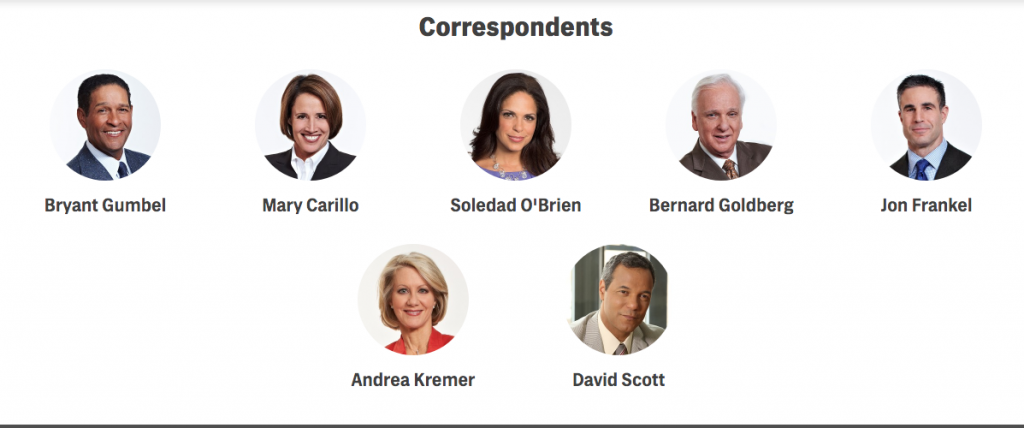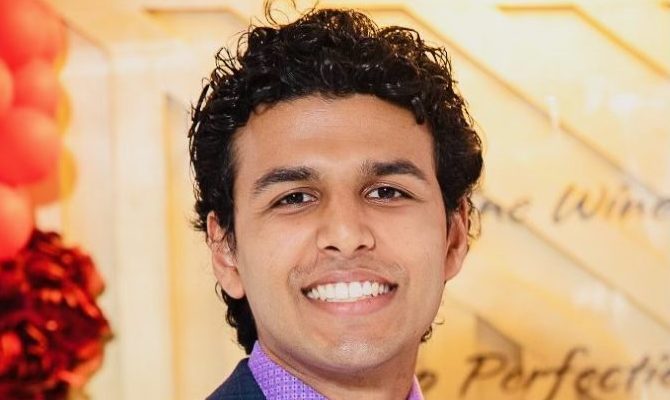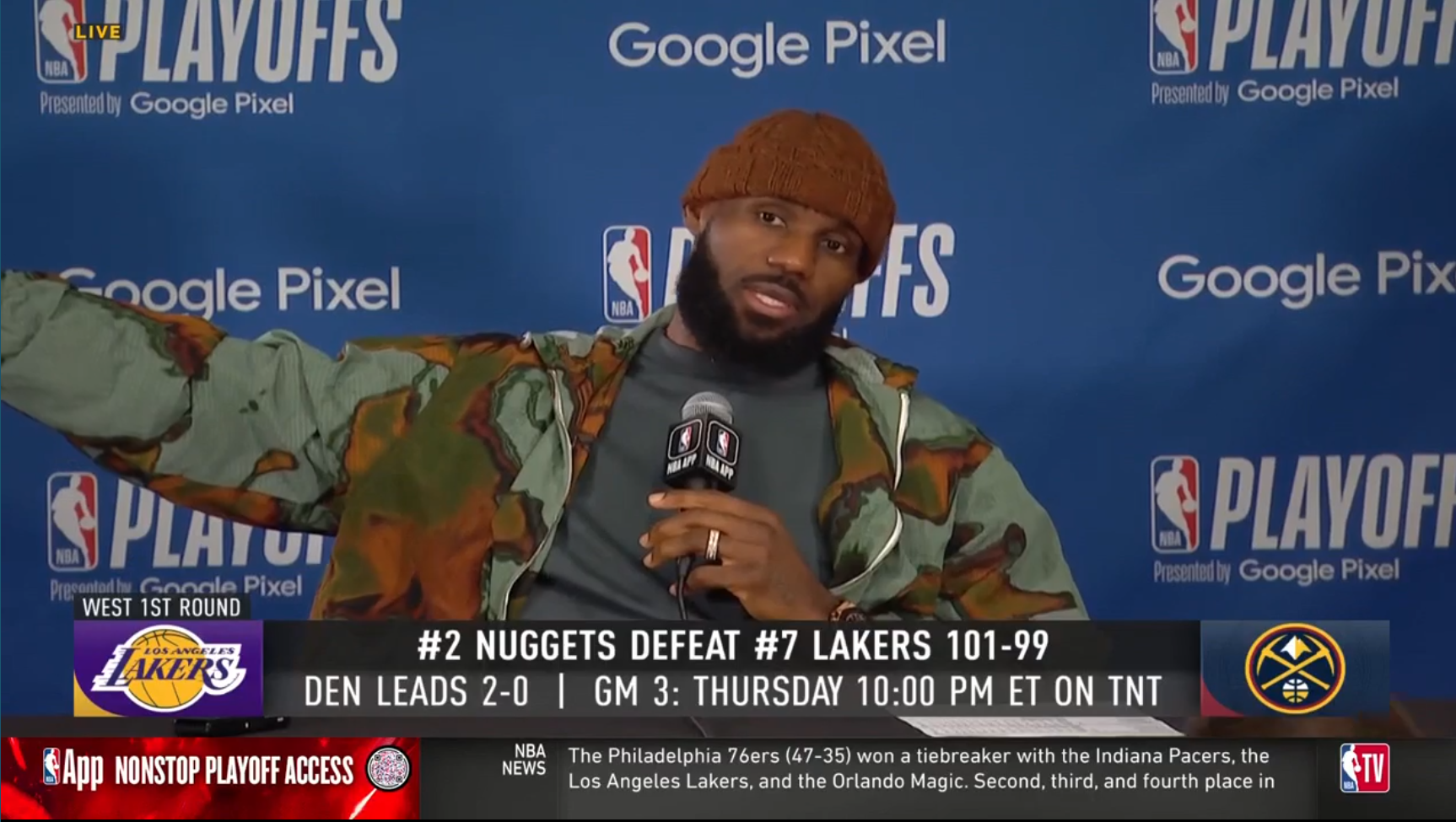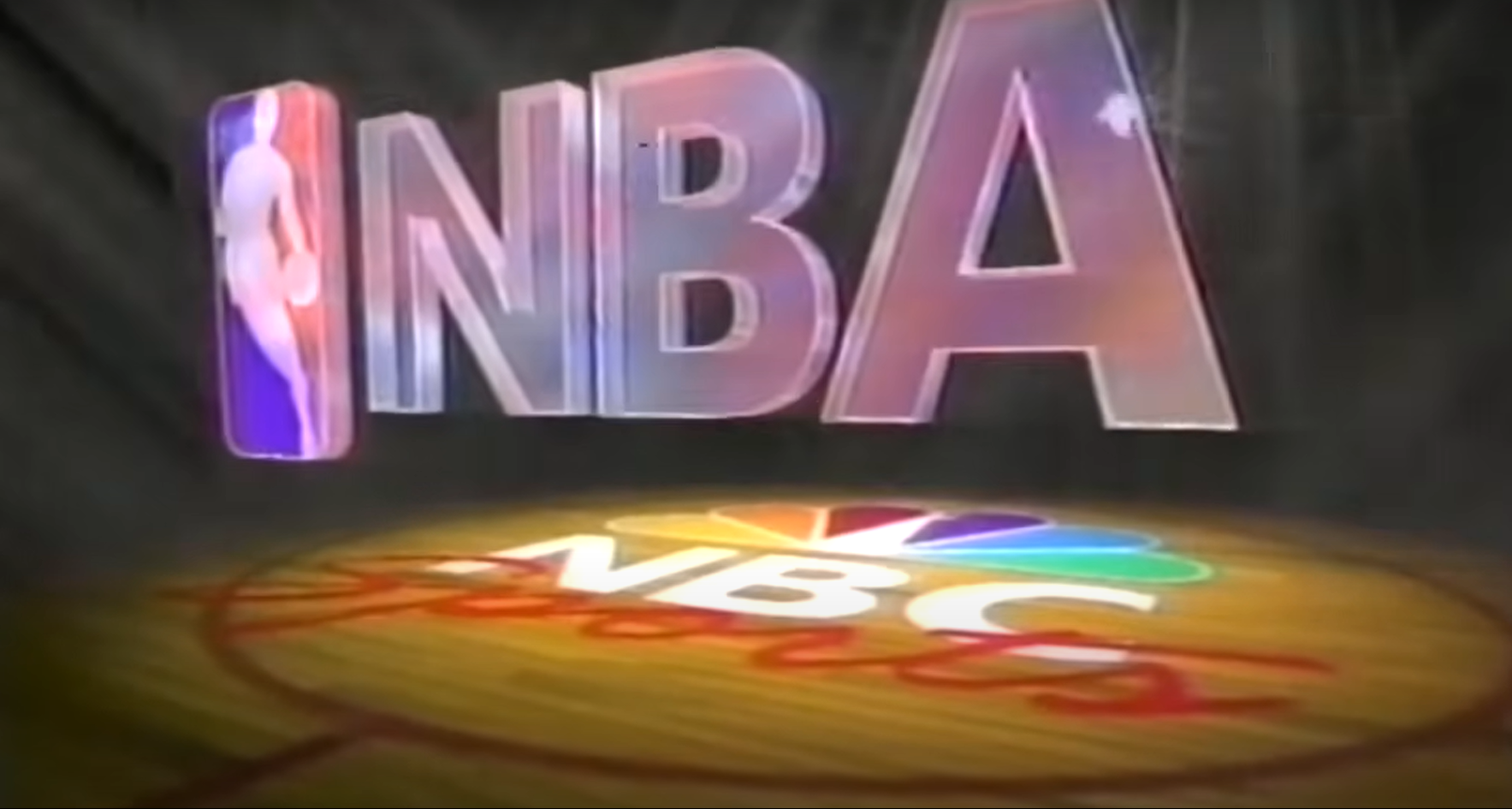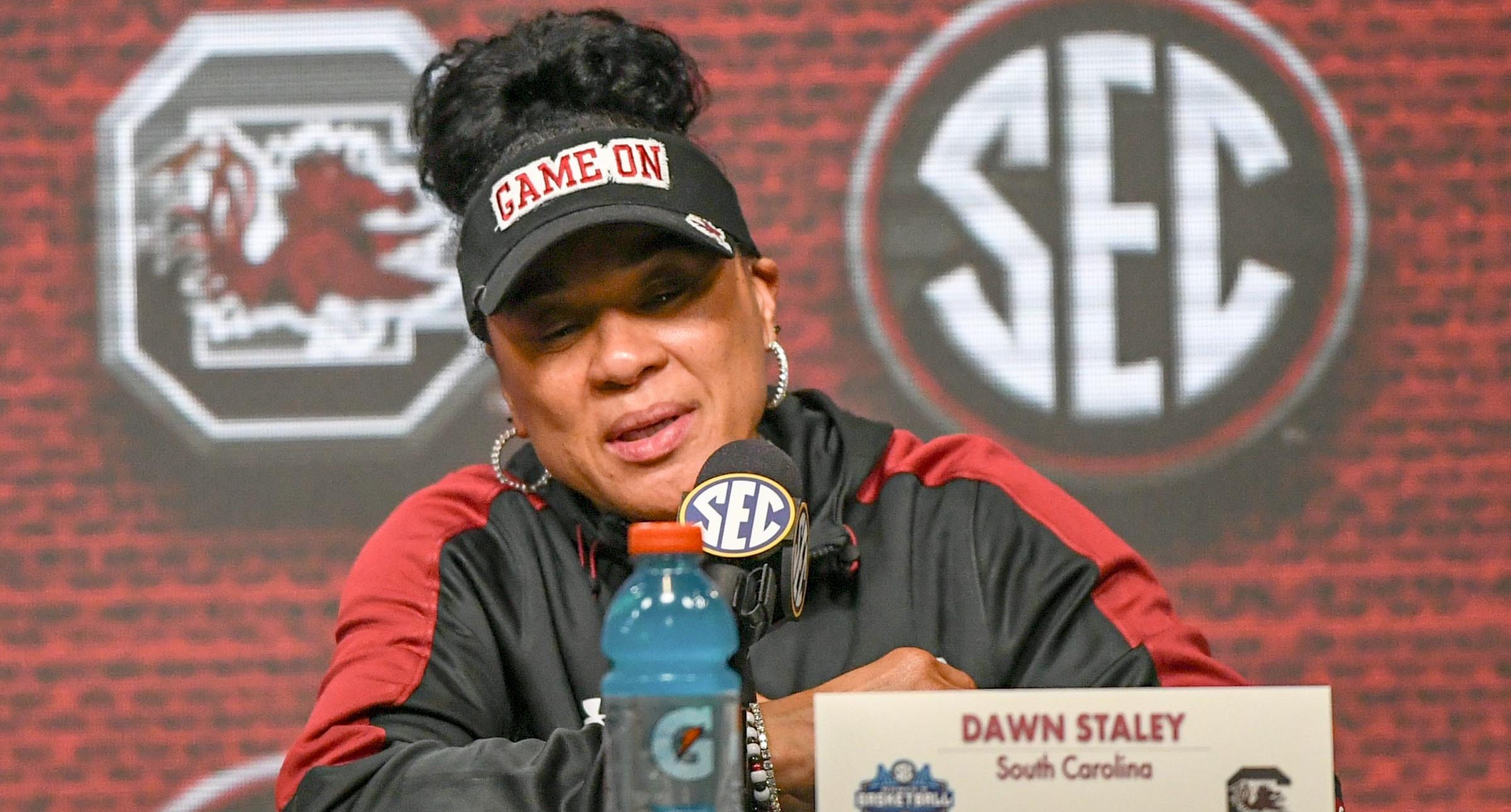In a move that many may have predicted but has largely gone unreported, unnoticed, and somewhat unexplained, 14-time Emmy award winner Bernard Goldberg has left HBO’s Real Sports. The veteran reporter announced the move on his Patreon page in early February. Goldberg had been with the acclaimed program for more than 20 years, with eight of his 14 total Emmys coming from his work on Real Sports. Goldberg’s run at Real Sports has been nothing short of legendary but has seemingly dissolved in abrupt fashion with his known conservative politics becoming an increasing source of friction between him and the show’s other correspondents and overall editorial direction.
Goldberg is still listed as a correspondent on the website, and the show has yet to acknowledge his departure (although it’s possible this reporter’s outreach on the subject may spur some type of choreographed send-off in tomorrow’s episode or a future episode).
Update: HBO has issued the following statement.
Earlier this year, Bernie made the decision to leave Real Sports. Over the course of two decades, his investigative reporting produced some of the most impactful stories in the show’s history. We thank him for his contributions and wish him all the best.
So, how did we get here?
We’ll walk through the timeline relying mostly on the extensive written and spoken words in Goldberg’s final six months with Real Sports momentarily. I suspect the discourse will likely ring as familiar and true for many concerned with or with a rooting interests in politics, the culture wars, and the growing polarization in the United States. Before going down that wormhole, a more concise Cliffs Notes version on how such a fruitful long-term and marriage unraveled to the point it became an inevitable divorce.
– In mid-September of 2020, Goldberg published a guest piece for The Hill titled, “With messaging on racism, sports joins the polarization of our lives“. In the piece, Goldberg spelled out misgivings about the one-sided direction of conversations on racism and activism in sports in the 2019 Real Sports year-end roundtable. Goldberg explained that in the upcoming 2020 December roundtable he would be more vocal dissenting in these conversations, and spelled out his conservatively principled arguments, which he indeed presented nearly verbatim in the December episode.
– Later in September, Goldberg’s segment on transgender athletes was abruptly pulled from airing amidst growing backlash on his handling of the topic and the participants in the segment. HBO termed the segment as “postponed”. But many suspected that was just a convenient PR spin and perhaps this signaled the beginning of the end of Goldberg at Real Sports, with the growing rift of the show’s progressive editorial direction and Goldberg’s dissenting conservative politics now fully exposed to the public.
– In late December, Goldberg made his first appearance on Real Sports since the pulled segment on the year-end roundtable episode, which once again was heavy on segments about racism and activism in sports. As promised in his September article, Goldberg laid out his beliefs that sports and sports fans would be better off without conversations of race and activism, that systematic racism did not exist in the United States, and that movements like All Lives Matter and Blue Lives Matter should not be sidelined, silenced, or canceled. Goldberg’s arguments got little to no traction and received ample pushback by the other correspondents, as well as from the host, Bryant Gumbel. Throughout the roundtable, Goldberg was often visually disengaged from the conversation and had several awkward moments where he had no reaction to some of the shows lighter moments. It’s not hard to rewatch now and sense the relationship was almost fully frayed at this point.
– In the weeks and months to come after the roundtable episode, Goldberg answered questions on his Patreon member site about the appearance and how his arguments were so easily dismissed, to which he expressed his growing frustrations of being the show’s only conservative correspondent.
– In mid-February, Goldberg posted the following note in his mailbag column announcing his departure from Real Sports:
“Friends:
From time to time some of you have commented on my work on the HBO program Real Sports. I just quit the show after 22 years working there as a correspondent. There are more than a few reasons for my decision, but for now, let’s just say I lost interest in the work. I may have more to say in the future.”
Below I lay out both the written and spoken specifics that lead to this outcome. While doing so was tedious (and I suspect reading will be a bit tedious as well), I think the actual comments have value as they will likely ring true to many people in these polarized times. It’s a story many of us are living ourselves, balancing avoidance with honest conversations and the tough realizations, decisions, and consequences that come with having these conversations.
Goldberg states his intentions months in advance
I didn’t find Goldberg’s September article until after I transcribed his December appearance on Real Sports which made it a jarring to see just how his comments below exactly mirrored his comments on the program months later. Goldberg clearly was motivated, organized, and seemingly eager for the December roundtable and the opportunity to more proactively convey his thoughts on the subjects of racism and activism in sports. Here’s some of what he said in the article:
Here’s what I’ll say: As long as the league and team management are okay with it, athletes have every right to protest. They have every right to take a knee before a football game. They’re free to talk about racism in America, and they’re even free to boycott games to make a point, if that’s what they want to do.
But players aren’t the only ones with rights. Fans have rights, too. They have the right to say, “I didn’t tune into this game to watch a protest demonstration.” They’re free to say, “I’m not tuning in to hear about ‘system racism.’”
They may not want to watch NBA players wearing only league-approved slogans on their uniforms. “Black Lives Matter” is one such approved slogan — but “Blue Lives Matter,” to honor police officers, is not. Neither is “All Lives Matter.”
Athletes want to lecture us — and that’s their right. But, as I say, fans have rights, too.
A few days ago, I tuned into a hockey playoff game and, before the game started, there was a ceremony that featured a player who said: “Racism is everywhere.”
I don’t believe racism is everywhere. I don’t believe it’s systemic. I don’t believe it’s in the DNA of our country. And I didn’t tune into the game to get a lecture about how racist America is.
So I changed the channel.
We Americans love our sports, and so it’s possible that we’ll tolerate the lectures on race just to watch the game.
Transgender segment further exposes and widens the ideological rift between Goldberg and Real Sports
Not long after Goldberg’s The Hill column (which went largely unnoticed), Real Sports was set to air a segment on transgender athletes manned by Goldberg. However, the segment never aired after being abruptly pulled, with all mentions and teasers of the segment scrubbed from the internet. Below is the more concise version from our article in September on what had transpired behind the scenes:
- Outsports reporter Dawn Ennis was given a screener and a script of the segment, and found the feature to be problematic on a few fronts, including those who Goldberg interviewed, leading questions, and the feature’s use of deadnaming, which is defined as “when someone, intentionally or not, refers to a person who’s transgender by the name they used before they transitioned.”
- Ennis then interviewed Goldberg, and brought up these concerns and the concerns of June Eastwood, one of the athletes featured in the piece. Eastwood had told Ennis that she was uncomfortable with her interview and had already voiced those concerns to HBO producer Jake Rosenwasser.
- The interview with Goldberg escalated and included this contentious exchange:
“Activists will not be happy with the piece. And frankly, I don’t give a damn if activists are happy with the piece.”
Goldberg was yelling at me through the phone. I noted that he was obviously upset and asked him why.
“The reason I’m upset? Yeah: Because I am tired of activists wanting their way. Screw that. If I can’t say that June Eastwood used to be [X] Eastwood, what in the whole world is that? Who says? Because transgender people say that’s the rule? No! That’s not the rule. That’s your rule, maybe. It’s not my rule,”
I concluded by asking Goldberg if he was aware of GLAAD, which has a media guide offering advice to journalists who interview the trans community; one suggestion is to avoid deadnaming.
“I know about GLAAD,” he said. “Advocates, I don’t care. Don’t you understand that they’re an activist group and I’m a journalist? If you don’t get that, I’m not sure what kind of sports journalist you are.”
- Ennis then reached out to various LGBTQ advocates, who unilaterally condemned the piece.
At the time, HBO said the segment was just postponed, but many knew better. The piece was too problematic for HBO, and the idealogical gap between the show’s progressive editorial direction and Goldberg’s politics was now negative publicity to the show. Additionally Real Sports had invested a lot of reporting resources into the unairable segment and the show and was forced to air a new episode that now included a years old segment as a replacement to fill the void of the pulled transgender athlete story.
You could make the argument that HBO’s decision to not back a journalist with the stature and tenure of Goldberg may have been the key accelerant in the demise of the relationship. However, it should be noted that major media institutions like The Associated Press and The New York Times have both apologized for the use of deadnaming in articles and that the Times and many others have offered stylebook updates that ended the practice of deadnaming. If Goldberg was unwilling to compromise on the issue, and thus making the segment permanently unairable, it’s not hard to imagine the relationship was already on borrowed time.
Goldberg’s final appearance on Real Sports
If you’re unfamiliar with the format of the year-end roundtable episode of Real Sports, they play shortened 2-to-4-minute versions of a handful of features from the last year, and then have extended conversations about those segments. With much of this past year’s segments tilting towards social activism, Goldberg — as promised in September — was poised to not bend in these conversations despite the strong consensus of progressive points of view from the rest of the correspondents.
I’ve somehow managed to catch the same episode of Real Sports with Bryant Gumbel several times. I can’t believe what comes out of Bernard Goldberg’s mouth. It’s fun to watch @soledadobrien and Mary Carillo try to keep a poker face.
— Julee with two Es (@juleeslc) December 31, 2020
After mildly dissenting in a few conversations early in the show about sports returning amid the pandemic, the conversation about race and activism commenced with Goldberg reciting much of his September article’s arguments. Below is the exchange during a conversation about activism and if team owners would continue to be supportive of continued activism:
Bernard Goldberg: Athletes have all sorts of rights. They have the right to take a knee before a game. They have a right… as a NHL player said on national television before a playoff game, “Racism is everywhere,” those were his exact words. They have the right to do that. And you know what, fans also have rights. They have a right to say, “I didn’t tune in to get a lecture about what a crummy country the USA is.” Because if racism is everywhere, if it’s systemic, if it’s in the DNA of the country, then this is indeed a racist country, a crummy country, and I don’t buy it. And a lot of other people don’t buy it. And that’s one of the reasons, not the only reason, not the only reason that ratings dropped this year.
Bryant Gumbel: I’m not sure we can say that with any degree of certainty, Bernie, because ratings were down across the board even for sports that were, quote, “white sports.” The Masters ratings, the US Open golf ratings, tennis ratings were down. So we can’t ascribe that to resistance to social justice pursuits.
Bernard Goldberg: I said one reason, and I could tell you that I tuned in to the NHL playoff game. I heard the players say before the game in a ceremony that “Racism is everywhere.” I changed the channel because I don’t believe racism is everywhere. To the extent that there is racism, it’s too much. I wouldn’t wash my hands in the same sink with a bigot. If he wants to say racism is everywhere and the league allows it, he’s entitled to. And I’m entitled to change the channel…
A few minutes later, Goldberg shifted his offense this time on the subject of freedom (or lack thereof) to express controversial Conservative movements:
Bernard Goldberg: Does it not bother anybody that only certain views are apparently acceptable? You can have on your NBA jersey all sorts of slogans like “Black Lives Matter” or “Say Her Name,” but you can’t have “Blue Lives Matter” even though cops are getting killed in numbers that are frightening? That’s not allowed. Does that bother anybody? Does it bother anybody that the long-time play-by-play announcer for the Sacramento Kings got fired for tweeting “All Lives Matter.”
Bryant Gumbel: I guess, Bernie, I guess the separation comes when people say “Blue Lives Matter,” umm… let me put it this way: when the NFL takes a month to salute breast cancer, I don’t see anybody jumping up and going “Why just breast cancer? Why not testicular cancer? Why not lung cancer?” and making a big deal about it? I’m sorry. Why can’t we simply applaud and acknowledge black lives matter? Because they are the ones that are most in jeopardy. What’s wrong with just acknowledging that? Why does there have to be, “Well what about this? Or what about that?” When people said “Boston Strong” following the explosion at the marathon, nobody jumped up in Chicago and said “What about Chicago Strong? We got people dying here. What about New York Strong? What about LA Strong?” No, it’s fine. It’s enough to acknowledge the need to write or focus on a problem without saying “Me Too.”
Bernard Goldberg: Do you think a person should lose his job and livelihood because a person says “All Lives Matter”?
Bryant Gumbel: Bernie, I’m not in a position of judging whether somebody should or should not lose their job. I’m not. I’m not. I’m really not.
Bernard Goldberg: I think the cancel culture in the world of sports, as in the culture in general, is a very frightening thing. Especially for people in the news business, the information business.
Mary Carillo: I agree with that.
Bernard Goldberg: If I have to watch every word I say because if I say the wrong word I might get canceled, that’s a very bad thing for America. It certainly would be a bad thing for me. And we all in the news business ought to be very, very concerned about the cancel culture in the world of sports and outside the world of sports.
Bryant Gumbel: I don’t disagree with you. I think we’re all concerned about it. We all feel like we are doing a high-wire act every time we say something that goes out on the airwaves. It is what it is.
Goldberg would later predict that if athlete activism was going to continue, “There are going to be more and more people tuning out,” whereas all of his colleagues applauded the rise of activism in sports.
Goldberg would close the show stating that he hoped sports would move away from activism and return to “an oasis, a departure from politics.” However, it was his comment a few minutes earlier that may have been the most telling about his strained relationship with his colleagues and the show.
For much of 2020 in the world of sports, outside the world of sports, and in the past hour on this broadcast, race has been a major issue. And I think too often having that discussion is difficult. Not because one side is pure and the other side is racist. But because both sides too often attribute bad motives to the other side. I disagree with many of my colleagues on whether America is a fundamentally racist country. But I don’t attribute bad motives to them. And I’m sure it works… and I hope it works the same way in my direction.
Despite having multiple awkward moments where Goldberg seemed uncomfortable serious during some of the lighter moments on the show, Goldberg did deliver one of the funnier moments in his final episode, making a joke about the Washington Football Team’s lack of a name. Having retraced the growing friction between Goldberg and his colleagues for this piece, it was nice to see a final moment where the group seemed to be warm and friendly with each other.
Goldberg teases discontent, before announcing his departure
In the weeks after the episode aired, Goldberg addressed his readers several times. A few days after the episode aired, a reader commented, “I felt like you were the lone voice of reason in a 6-on-1 discussion.”
Goldberg responded, “As for differing opinions, I have said — out loud — that I AM diversity on the show. I’m not thrilled about that.”
A month later another reader asked, “My ears were abused by all your ‘woke’ colleagues who dismissed anything the right is concerned about including dead police officers because it’s the left’s turn at the sympathy megaphone. How one-sided can a group be?”
Goldberg responded, “How one-sided can a group be, you ask? I AM diversity on that show. And let me share a secret with you: I’m getting tired of it.”
Goldberg announced his exit a few weeks later. He further commented on his exit in his following mailbag column:
“Honest conversations are not possible. Both sides have their minds made up. As for name-calling: The word racist has lost its clout. Once it was a powerful putdown. No longer. It’s been used too many times to shut down conversation.”
A reader inquired about a possible on-air send-off or montage of his segments versus just disappearing from the show, to which Goldberg responded, “Don’t know, Don’t care.”
Now what?
It will be interesting to see how Real Sports and HBO will handle Goldberg’s exit. HBO didn’t respond to our inquiry, and again, no mention or tribute about his departure has been made on the episodes since he announced his exit. It’s awkward. It’s touchy. It’s potentially red meat to conservative news outlets, as there’s a trend of conservative personalities having high-profile partings from more left-leaning media brands and subsequently doing an all-out media blitz going scorched-earth on their previous employer. Goldberg thus far has done the exact opposite in keeping his departure mostly private (behind a paywall) and carrying on with his other projects.
Another thing to keep an eye on: will HBO replace Goldberg with another contributor? If so, will they have any motivation to bring on someone with a similar ideology to Goldberg to maintain some diversity of opinion among the show’s correspondents? While a diversity of opinion is extremely valuable, perhaps HBO might prefer to avoid ideological conflict on the show entirely given how this relationship ended and how other high-profile partisan media splits have drawn waves of bad press and in some cases, protests.
However you view it, Goldberg’s departure is a sign of the times, and one many can identify with. You might be Goldberg (the lone dissenting voice) in a certain group of colleagues, friends, or family. Or maybe you have a Goldberg in your group and hold out hope more conversation may spur some type of ideological shift. But what we’ve seen in this instance is that the stakes of these conversations are not nothing. While you may gain an ideological ally, you also in many cases may ultimately lose a friend, colleague, or family member.
Goldberg seemed to cherish digging his heels in, dissenting and offering a differing point of view. He had the honest conversations he was looking for. They probably went as he expected, but hoped they wouldn’t. Goldberg held on to a glimmer of hope that his arguments would be persuasive, that activism in sports would fade away, and that we’d carry on with our lives as we have in the days of yesteryear. But the ideological disconnect was a bridge too far for this group and for HBO. Like so many of us today, the intense heat of the culture wars severed another relationship with nothing truly learned and the all too familiar taste of bitterness all around.


